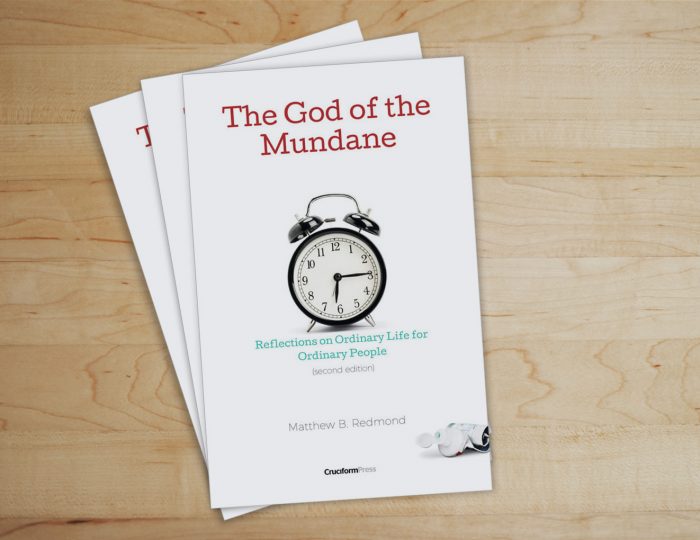
LICC recommends: The God of the Mundane
If there’s one thing I remember from GCSE physics, it’s that a small weight on the end of a long seesaw will counterbalance a large weight near the middle of the seesaw. I don’t know why I remember that, but I’m glad I do. It’s the perfect image to capture the heft of Matt B Redmond’s little book The God of the Mundane.
You’ve probably read your fair share of books that call you to give generously, to pray regularly, to read your Bible committedly, to share your faith boldly, to serve the church sacrificially, and do all the things that good Christians do. Often, they come with an implication that the prize for all this is a life that looks like a New Testament apostle – fame, influence, and increased holiness to match.
And then there’s The God of the Mundane, which is a call to something else entirely.
Matt B Redmond writes for those of us who are less like Paul, Peter, John, et al and more like the people to whom they were writing. We’re not famous and nor do we want to be. We live and work in familiar places, among familiar people, doing apparently unspectacular things. Our days don’t seem to contain the kind of material that Christian biographies are made of. We might even go to bed wondering if what we do matters to God when opportunities to share the gospel are so few and far between.
The message of this book is simple: yes, it does. What you did today mattered inherently and matters eternally. Because it matters to the God of the mundane.
If this sentiment jars with what you’ve read elsewhere, it’s probably because it cuts against the grain of our instincts about what really matters to God: the large, the noisy, the flashy. As Redmond puts it, ‘We think the small, mundane, ordinary things we do each and every day are worth nothing before God because they are worth nothing before the gods of this world’.
His book is a short and easy read: a collection of essays on different aspects of the central theme. It’s designed to help you think afresh about what a ‘radical’ Christian life is all about – and every essay does just that, breathing life into souls weary from the ever-present feeling that they don’t measure up. The God of the Mundane affirms that there is no sacred-secular divide separating ‘radical’ Christians from ‘ordinary’ disciples: we’ve all been given good work to do, and we can push back the effects of the fall and extend God’s reign right where we are.
Redmond tells us as much in heart-warming recollections of encounters with café owners, full-time parents, and dental assistants. These are people who will probably never speak at Christian conferences. And yet, their ‘quiet’ lives win the respect of outsiders (1 Thessalonians 4:12). They may not be remembered like Paul, but, like most of us, they are the kinds of people that Paul actually wrote to: the people of God, a royal priesthood and a holy nation.
I’ll bet this book is unlike any other Christian book you’ve read before. But that’s why it matters. Yes, it’s so far to the edge of the seesaw it’s almost off it entirely. But The God of the Mundane is a mighty weight, bringing balance to our perceptions and reorienting our instincts. Our God is the God of our mundane, ordinary lives – which brings tremendous dignity to the daily work we do and the ordinary people we meet, in the unspectacular places we find ourselves.
That sounds like good news.
Tim Yearsley
Programme Lead – Emerging Generations
